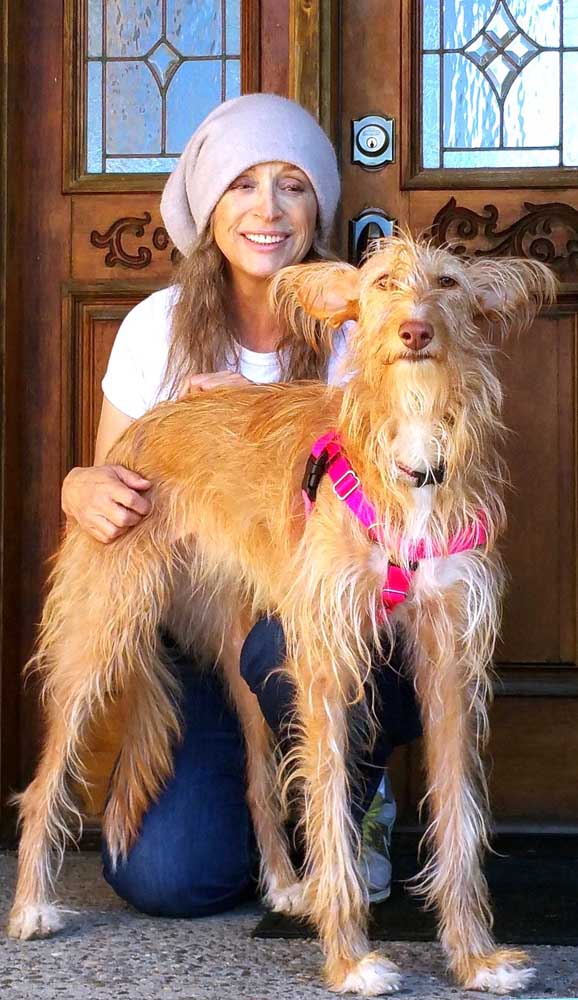Canine Corner: Updating 12 terms and attitudes in dog training and ownership
Published 8:47 am Monday, August 31, 2020

- Rain Jordan and Dahlia.
One of the first things I did when dog behavior and training became my official job was to replace the labels “obedience” and “manners” training with “skills” training. Not just for clarity’s sake, but because of respect for the lives of dogs.
No matter how many rises and falls in the still-scary roller coaster of dog training schools of thought and action, ultimately the ride must be not only fun, but safe and humane. To that end, here’s a sample collection of old, obsolete versus new, modernized attitudes about humane dog training, handling, and care.
Obedience
The old perspective: “Do as I say, because you’re the dog and I’m the human.” The new perspective: “You’re my companion; it’s a two-way relationship. I nurture it by helping grow your skills and ensuring you’re well-paid for your efforts. When you have trouble, I’ll ask myself how I can make it easier for you for you to succeed. After all, we’re both learners, and we are part of one another’s curricula.”
Manners
The old perspective: “You have to behave appropriately!” The new perspective: “When you behave in ways I don’t like, I work to figure out how that behavior functions to meet your needs because ‘misbehaving’ on your part suggests missing something on my part.”
Rude
The old perspective: “Your behavior offends people.” The new perspective: “You’re not a human; you’re not built to abide by human mores. You cannot really even understand what they are — but I can learn more about rules of your world and try to accommodate you, since I have a lot more options.”
Stubborn
The old perspective: “Why won’t you cooperate? You know what you’re supposed to do!” The new perspective: “What is making you feel confused or hesitant, and how can I improve my training habits to help you understand and be excited to respond to me?”
Manipulative
The old perspective: “You just do this to get attention or treats, but I’m not falling for it.” The new perspective: “You do this because wittingly or unwittingly, I’ve reinforced you for doing it up till now. I will work to clarify and rebuild reinforcement patterns without inadvertently creating behavior chains that we get stuck in and frustrated by.”
Pushy
The old perspective: “You need to learn that you’re not the boss!” The new perspective: “Sometimes I get caught up in my own world and forget about yours; thank you for reminding me in the gentlest way you know how.”
Aggressive
The old perspective: “Touch your teeth to my skin and you’re gone!” The new perspective: “It’s my job to help you feel safe, and show you that it’s rewarding to cooperate with necessary things like vet visits and nail trims. We can learn to work together, without intimidation or force, which naturally puts you into self-defense mode.”
Out-of-control
The old perspective: “You’re unmanageable, and it’s exhausting.” The new perspective: “You have limited options for letting me know when something’s wrong and you do the best you can with what you have. Since I have more options, I will learn more about recognizing your signals and being succinct with mine, so that you don’t develop behaviors based on fear, discomfort, confusion, or frustration.”
Pain in the rear
The old perspective: “You are just too much work for me. I can’t handle it.” The new perspective: “Every effort I make on your behalf also makes me a better person. Thank you for being a huge part of my own progress as a kind human being.”
Messy
The old perspective: “You have to stay outside or off the furniture so things don’t get dirty and hairy.” The new perspective: “I get things dirty and hairy too! And yet things get clean again. The principle is no different when it’s your hair.”
Spoiled
The old perspective: “You have everything, maybe even too much!” The new perspective: “You’re essentially my captive, so the least I can do is provide you with all the enriching things and experiences that you need to feel happy and comfortable here.”
Expensive
The old perspective: “It’s ridiculous that I spend more money on you than on anyone else, including myself!” The new perspective: “You give me something that no one else can. Everything I can give you will always be yours.”
Rain Jordan is a certified canine behavior consultant, dog trainer, fearful dogs expert and the author of several books, including “Such Small Hands: An Anti-Aversives Primer,” and the children’s book, “The Dog Who Couldn’t Be Petted.” Visit her at www.ExpertCanine.com.




